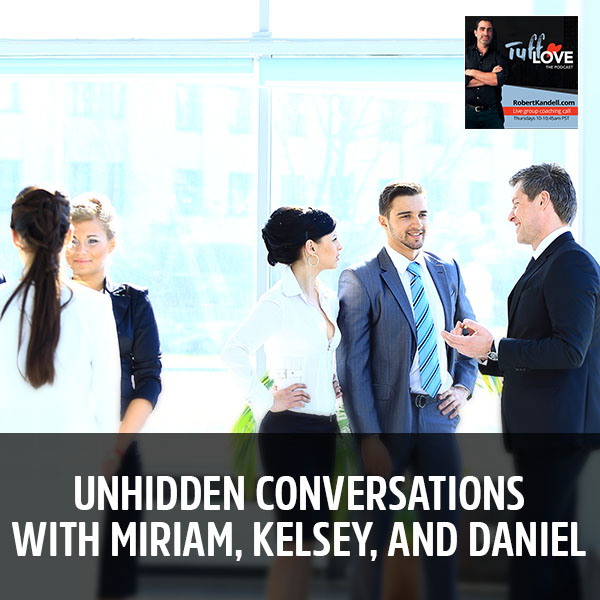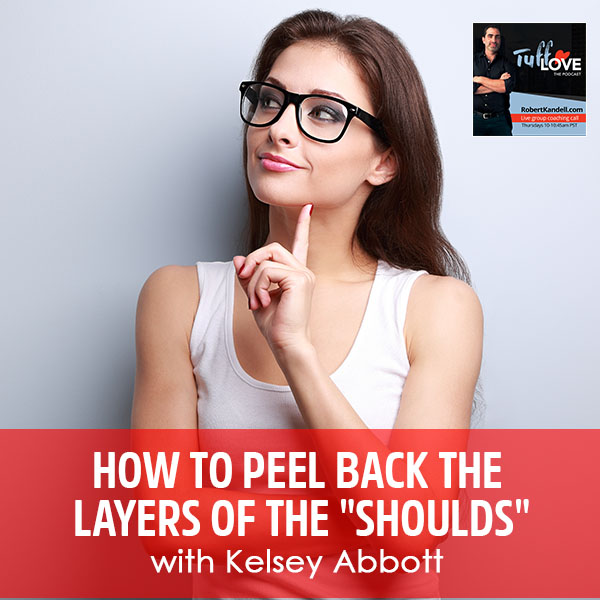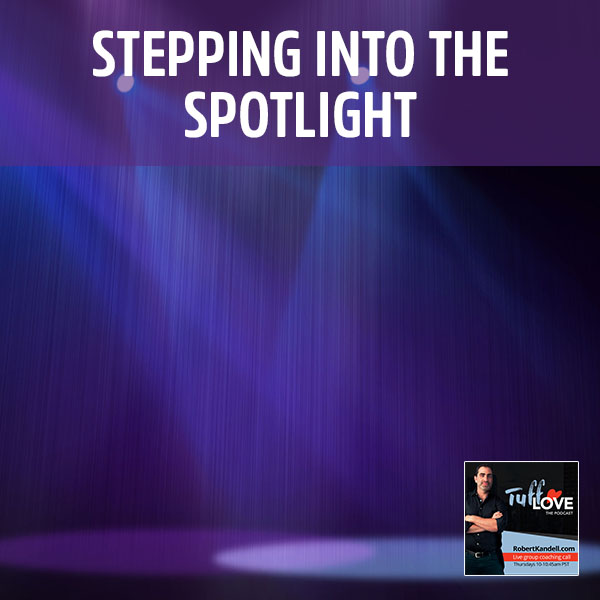Rob takes three of his favorite unHidden Conversations from powerful and energetic Facebook Lives that he did to celebrate his book launch. Sensual embodiment coach Miriam Elyse talks about pleasure and the unconscious ways that we avoid it. Confidence coach Kelsey Abbott explores the concept of abundance and confidence. Kelsey helps people find their awesome. Business coach and author Daniel Fox gets into the subject of the masculine-feminine transition. Daniel helps people turn their passions into thriving and fulfilling careers.
170: unHidden Conversations with Miriam, Kelsey, and Daniel
I’ve taken three of my favorite unHidden conversations, a bunch of Facebook Lives I did to celebrate the book launch. I had a powerful, tight and energetic conversation that wowed me. These are three of my favorites. The first is a woman named Miriam. She’s based in Ohio. She’s an acupuncturist and women’s sexual health coach. We talked about the concept of pleasure and our unconscious ways that we avoided it, don’t feel right about it and the conversation goes into the concept of how to have more pleasure, have more enjoyment and where we blocked ourselves. It’s a deep, sexy wonderful conversation.
—
What’s your basic concept? What’s the first viewpoint around the code of conduct around pleasure?
One thing that has been up a lot for me and for my clients and friends that I’ve been talking to is how easy it is for pleasure to go unconscious, for it to be something that’s so overwhelming. We experience sensations and it can totally take you over especially when it comes to sexual pleasure. It’s hardwired in the human system, our psyche and our body to want that type of pleasure. Even to go beyond our moral codes sometimes to get that pleasure. Specifically, I’m talking about immoral sex, cheating on your partner, even rape, even things like that that are more controversial and how that ties into pleasure and our animal instincts towards pleasure. Because of that, there’s something so innately primal about it that it seems less connected to our higher brain that has the discernment of, “Is this healthy or not?”
Can I ask you a question out of left field? I did this event with Eva Clay. One of the participants said that men need to have sex. There’s a primal need to have sex and if they don’t that leads a lot to toxic behaviors. Riffing off what you said, do you think that’s a true statement in your experience?
Men and women both have sexual needs. I know that testosterone itself, the hormone testosterone. Somebody who has higher testosterone, man or woman, not all men need sex so clarifying that. With that energy, the instinct for that testosterone sexual drive is to go outward and to conquer. If that energy is repressed, shamed or not appropriate, then the higher mind has to override that animal instinct. It can be very healthy and very appropriate to do that if it’s done right. It can also be unhealthy and end up being something that causes passive aggressive repressed behaviors later.
I can feel that inside of me, that desire and social conditioning that lies on top of it. That I shouldn’t want that. There should be certain times or I should be able to control it. How do I handle the differences? How do I find those codes to live inside of that?
I’m glad you asked. That’s a lot of what I work with in my personal practice. Coming from the Eastern tantric sexuality side of things and understanding that that raw desire is part of your primal power. It’s part of your power as a human that you have access to you in your body. You don’t want to squelch that power. You don’t want to give it away. It’s not bad in its essence. It’s very pure in its essence. Learning how to cultivate and harness the power is the key to making it from some unconscious animalistic thing that we do beyond our ability to control it. It takes it to something where we can choose how we want to use that and maybe even take it out of the sexual context altogether. Maybe use it for creative projects, for example. That may sound like a great idea but how do you do it? It might sound challenging until you have practice with it and it is. The first couple of times maybe you repressed the sexual desire in favor of something that you want to give that desire to. You want to get that life force. It feels you’re trying to swim up a river. Eventually, it can get easier and easier.
It’s a channeling. What we’re hearing also is a permission to confront it, to not make it wrong, to not scandalize our desire. That’s what society does. Inside the code of conduct, there is a shaming of our natural rawness. I’ll speak as a man. We bumped up against us because we have to roar inside. There is so much inside and then not knowing, especially now with #MeToo and the rape culture and all these pieces, how to clearly be a gentleman and yet be the raw animal we are, how to be both at the same time.
It’s good to look at the analogy. I love working in analogies and metaphors. It’s good to look at the analogy of imagining a volcano. We live on an island. We don’t want the volcano to explode because it could cover all of our houses in lava, but we also don’t want to put a cap on that volcano because eventually, the whole mountain is going to crumble because the force that comes from within the earth is that powerful. Either the mountain is going to crumble or it’s going to fall asleep altogether, which also has its negative side effects. What we want to do is we want to give that force, that power an outlet, but we want to channel it. Maybe we might dig little channels and let the lava flow where it needs to flow where it’s safe for the houses and can benefit us. Unfortunately, the negative side of repressing something is it always comes back stronger and more shadowy. It’s like the repressed urges turn into their demonized version. The repression creates the shame around it and the shame infects it with this inner feeling of, “This is wrong, but I can’t help it. I must be bad. If I’m bad, then I’m the person who does bad things.” That belief almost allows us to go out and do bad things because we have that inner belief that we’re bad people or we’re sinners.
It’s propagates. The shame propagates more toxic or bad behavior, which brings on more shame, which propagates more behavior. I can see that.
Behavior or thoughts or porn addiction, for example, being addicted to violent pornography. If you have a certain fantasy that it’s not okay to act out. Being addicted to violent pornography is a better choice, but it’s still going to cause a separation and how intimate you’re able to be with anybody, with your partner. Meanwhile, while you’re trying to share this heart space of pleasure and your partner’s openness and vulnerability, you have this hardwired loop in you. “In order for me to get off, I need to have this violent fantasy.” I see this happening often.
That raw desire is part of your primal power. Click To TweetLet’s talk about the difference between men and women from your experience. What do you see are the binding codes of conduct for women? Do you have some alternative of how women can work with them, play with them and free themselves from these codes of conduct?
Men and women in this day and age, what you identify as, if it’s a masculine energy, a feminine energy, we all have both in us. Specifically talking about sexuality, there are hormones that we’re dealing with. It’s the hormone of testosterone versus the hormones of estrogen. Someone who is more feminine generally needs to have the feeling of love, heart connection and safety in order to be open sexually. Usually, a masculine person needs their sex to be open in order to connect to their heart. This interesting polar dynamic where, “I need one to get to the other. I need this one to get to the other.” Men and women, the masculine and feminine can balance each other out. What I found a lot is that everyone is different. There are a lot of women who have high sex drives and were always taught that that is bad. You need to hide that. Women are allowed to want sex in the same way that men are allowed to want sex. That creates one type of shame and internalization of that desire. Also, other women are taught that they need to not want sex to be available for sex. They don’t want to be a prude. It’s more accepted for a woman to resist sex and then allow it with her partner. Resist it and then allow it, that’s what a good woman does.
That’s in a religious context. For a woman, a very feminine, say less sex-driven, more emotionally-driven person, her medicine, her healing would lie around letting herself open up to experience pleasure for the sake of pleasure. How healing that can be to have a relationship with pleasure itself without it needing to be mean something about her connection to another person without having to be like, “My partner does this for me. This is a symbol of our love.” That’s beautiful, but it doesn’t have to always be that. Also, to learn and to relearn that her body is natural. The cycles of her body are natural and beautiful. Her pleasure is not only okay but a source of her deepest power as a woman. Co-dependency with pleasure is, “I rely on my partner to get me off. I don’t want to pleasure myself alone because my partner is not there and I feel I should be giving it to him.” Developing your own relationship with your pleasure is so empowering and teaches you how to be with your partner. Maybe more from his level or from the masculine approach where, “This feels good. Let’s share this good feeling together as innocent as children would explore their own bodies.” Bring the innocence back and remember the purity around sexuality.
There’s a lot in there. It’s a complicated way we live in society. Do you work mostly with men or with women?
I work mostly with women.
When women come to you and they say, “I want to enhance my sex life. I don’t want to be dependent my partner. I want to learn my own self-pleasuring,” what are some of your favorite techniques or pragmatic steps for women to get more in touch with their own personal sexuality?
With this, it always starts with the mind because the mind isn’t going to let you have any experience in your body until the mind understands that it’s safe, feels safe and held in a trusted container. A lot of times what we have to start with is unlearning the shame that we’re taught, unlearning to stop ourselves from going out of control at the moment of orgasm. A lot of women have never had orgasms because they’re terrified of losing control and terrified of looking bad, physically having an ugly face for their partner. I’ve heard women say this again and again. They are so afraid, “If I lose control, if I lose my composure, then my partner might not like me anymore.” It’s understanding how deep this wiring is inside of our own minds as women so that we can start to develop a healthy relationship with our bodies and with pleasure. We got to get the mind out of the way and leave the shame at the door, first and foremost.
I work with breathwork. Breathwork is the most important part of a tantric practice. It gives you the experience of being able to get in touch with energy. A lot of people don’t understand this concept of what energy is. If you do a certain type of more vigorous breath work, you’re going to start to feel something in your body. You’re going to start to feel this tingling and allowing your minds to get curious about, “What is this sensation in my body? Let me see if I can expand or contract the sensation. Let me see if I can move it to my heart. Let me see if I can move it to my vagina. Let me get in touch with energy and sensation in my body.” From there, then sexual pleasure becomes so much easier. It’s easier to see sexual pleasure and sensation as a function of energy expanding or contracting in your body. You’re more able to be aware like, “Is my mind taking me out of my body?” from developing the ability to step back and watch yourself.
Watch what’s happening in my body, what’s happening in my mind. What are my thoughts doing right now? Instead of being consumed in this monkey mind spiral of thought like, “Am I thinking about what I have to do now instead of being present with my partner?” From there, we can slowly over time train the mind to be present with sensation even if that sensation means terrifying vulnerability for a woman who has been molested in her early years. A lot of times we associate letting yourself feel with pain and with being out of control, with being hurt. Relearning that sensation can be something that brings you joy, pleasure and nurturance is huge and life-changing.

unHidden Conversations: The negative side of repressing something is it always comes back stronger and more shadowy.
You’re also giving a map to men who I don’t know if they know this is an important piece because a lot of men think arousal and permission is very physically based. I never knew that. I never knew the extent that the mind was involved in sexuality for my own personal evolution. It was such an important lesson for me to learn, to slow down, create safety, create containers and hold it. Not to make excuse for anything, but the lack of education was such an epic part of my evolution.
It’s important sometimes even for a woman who feels sexually expressed and healthy sexually, it’s important to constantly check in with yourself, to constantly be able to check in with ourselves. Do I feel safe now? Am I still present? Am I feeling in my body? Because even if we think we’re present oftentimes we can get used to operating at this level of presence or this baseline level of pleasure. “This is what’s possible. This is how I reach orgasm. This is what I’m comfortable with.” There are always so many layers deeper of what’s available to experience. Sexuality and pleasure are potential tools to reach our deepest self and our most true nature. If you’re taking it on at that level of a spiritual practice so to say or a practice of self-inquiry or self-mastery, then it can become one of the most potent and powerful tools for self-nosis, self-awareness and transformation because you’re letting yourself be taken over by something bigger than yourself. The energy of erotic energy and pleasure in itself is sacred.
How do people find you if they want to learn what you’re doing?
I have a website. It’s MiriamElyse.com. On Facebook, Miriam Elyse as well. Instagram, @PleasureAsMedicine. My business name is Pleasure as Medicine. I hold workshops in the LA area and Ventura County area a few times a month. I have some retreats coming up to Costa Rica for all women and in India, a two-week long tantric pilgrimage in March. All that information is on my website. I’m super excited about that.
Thank you so much for joining me.
Thank you so much, Robert. It’s good to connect with you.
Thank you, Miriam, for such a rich, delicate and deep conversation about pleasure. It’s something that we should talk a lot more about.
—
Number two is with Kelsey Abbott, who is a podcaster and confidence coach based in Florida. We talked about this deep intimacy when you’re talking to someone and that’s what I felt. I felt this rich connection with her. She’s back and we’re doing a show on the concept of letting more intimacy in and how to do that. Without further ado, here’s Kelsey and me.
—
How are you?
I’m great. How are you?
It’s such a pleasure engaging with you again. We had an energetic podcast recording.
I call it a few things, epic, analytic and disturbing. The conversation has been bubbling up under the surface may be not entirely under the surface, but it was a conversation that I want everyone in the world to listen to.
What did you love about it?
It’s a lot of stuff that people don’t think they want to talk about, but they don’t want to talk about it. It’s a lot of stuff that people tolerate. The put up with it or they ignore.
I describe it as intimate. I went home and told my wife about it. You fall in love sometimes over these interviews because they’re so intimate. That’s the way it felt. I felt we knew each other for a long time and it’s just super intimate.
It was connected. The energy is flowing between our hearts.
That’s the conversation we want to talk about was the concept of abundance because two complete strangers who don’t know a thing about each other besides one sheet my agent sent to you within a 45-minute conversation. Have those heart connections, have that abundance, have that special thing that we all crave, but don’t quite know how to ask.
It’s all about looking for it.
Receiving it and make it happen.
Developing your own relationship with your pleasure is so empowering and teaches you how to be with your partner. Click To TweetStep one is seeing it.
How would you define abundance? It’s a very vague open term. How would you describe abundance in your perspective?
I don’t know have a clear definition for it. Abundance, I think of it energetically. It is positive, uplifting, supportive, grateful, joy-filled, bubbly energy. Lots of it. It’s energy that reminds you that you are supported, that you’re seen, that you’re not doing this alone and that anything is possible.
It’s interesting because I’m usually a more grounded person. I tend to live with the lower levels of obstructions. A cup of coffee, twenty ounces, $2.47 at Coffee Bean, that’s where my mind. I’m an accountant by nature. When I think of abundance, I go up the ladder of abstraction into the possibility. In terms of big wide-open space, big expansion. Abundance is, “I’ll be taken care of no matter what.” We’re trained to believe there’s a scarcity for everything, love, sex, money, energy and time. I’ve trained myself to look opposite of that, that there’s always more abundance available. I was talking with my wife, Morgan, about it last night, about, “What are your plans? How do you see it?” What you see is what tends to manifest.
To your point, it makes you think of what abundance feel like. Abundance feels like arms wide open, being able to lie down on a cloud. You are supported. There’s no need to be small or closed in. It is reaching out. The abundance is if you allow it, it will fall into your arms if you see it.
Where in your life do you feel abundant and where in your life do you perceive you don’t feel abundant?
Let me share a story. I raced. I am a triathlete and I raced a triathlon. I wasn’t ecstatic about my race performance. I ended up placing first in my age group. At first, I brushed it off. That was my natural tendency and then I realized this is abundance being handed to you right here. The further abundance is in the congratulations that come and the opportunity to truly receive the praise. That is opening the flow to abundance. That is my experience. I get it. Abundance, it’s not just money. It’s not just clients. It’s not whatever it is you want. It’s not presents. It is this medal. It is this acknowledgment. It is words. Words of affirmation, that’s my love language. Look at this, all these people are saying nice things to me and if I truly receive them, I am exploding with gratitude for that abundance.
What had you initially think that it wasn’t a great risk? What was the inner critic saying?
The inner critic has been fine with my performance. I accept things that I could change, things that I’ve learned from on the swim, staying on the bike. On the run, I’m not okay with that. What happened? The inner critic was rough on me because that’s an old pathway that I have. I used to beat myself up constantly. That’s a highway in my brain. It’s one that I choose not to use anymore until it looks enticing to me. There were like candy canes down the highway. I was like, “Let me go take a drive down there and see how that feels.” It feels horrible. I don’t know if this is true for everyone, but it served a purpose for me by going down that highway. I was reminded this doesn’t work for me anymore. I was able to see, “I didn’t feel so good at the end of the race. It took me two bottles of water immediately after the race to be able to have a coherent conversation. I couldn’t open my first bottle by myself. I was dehydrated. That’s what happened. I don’t think it was my brain defeating me. I don’t think it was me giving up. It was something physiological. What can I do about this?” That’s the opportunity in it. Once I’ve found the opportunity, I was like, “Let’s get off this road. I don’t like it. I got what I came for.”
When you’re talking, I was thinking people tend to get motivated by inspiration or desperation. Sure, this are always grays in between, but those are the two ends of the spectrum. It sounds like you’ve been motivating yourself by desperation down that road for the most of your life. It does have benefits. We can be inspired. There are positive outcomes from being inspired by desperation and there’s a significant cost. There’s a cost to your adrenals, to your relationships and to your fight or flight. There’s physiological cost, energetic and emotional. For me, that’s a transition of mastery from desperation to inspiration not to let go of desperation but to have the skill to do both.

unHidden Conversations: We got to get our minds out of the way and leave the shame at the door if we want to develop a healthy relationship with our bodies and with pleasure.
Positivity is one of my StrengthsFinder strengths. That’s my home. When I’m not in positivity, it’s a scale. If I’m not in positivity, I’m in negativity. If I’m in negativity, I’m at my worst. Any time I stray into that towards desperation, I’m not being myself. I can’t be my best self from that place. To reframe everything, go in and grab what I need, come out and get back into positivity.
That’s hard because we live in a society that gives you the kudos for you kicking your own ass or beating yourself up for self-flagellating. We live in a society of disapproval. We live in a society that says you’re doing everything wrong all the time. For you to go swim against this, that’s not easy. One of the things I say to piss people off is, “I’m awesome. I’m in love with myself.”
I am too. It took me time to get here.
It took a long time for me to get there. You talk about how to have more abundance. The question of the talk is you have to start with, “My life is awesome. I am awesome. Things are awesome. How do I make it better? How do I go from good to better? How do I optimize things?”
Why do I have right now? Where is it? Look for the proof, look for the evidence. Whenever we come up with an idea, we seek evidence for it. If we decide, “I’m suck,” then we’re going to go and look for examples and proof of why we suck. If we believe, “I’m awesome,” we’re going to go look for examples and evidence to back that claim up. They’re just as easy to find.
They talk about morel mushrooms. Did you hear about this? Morel mushroom hunting is a skill. They say you can look for hours looking for a mushroom and can’t find any. As soon as you find one, you can see them all. I never had this experience. I tried but I couldn’t find one, but they say it’s like once you saw one mushroom, once you see one element of success or abundance or power or love or getting what you want, then you can see the rest of it, but you have to see that first one.
When we lived in Maine, we had these mushrooms on our lawn that my husband was like, “Those are morel mushrooms,” but he’s not a mushroom hunter. He has no background. He was like, “They’re delicious. I’ll cook them up. “Let’s do some research.” They are false morels, which can kill you. He still holds it against me that I wouldn’t let him eat them. Maybe I was holding him back from abundance or maybe I saved his life.
We’ll go with the latter. Where do you have more abundance in your life?
Everywhere. I love abundance. I love humans. I love connection like the power of connection we have in our podcast conversation. I’m open to more clients. I’m open to more financial abundance. I’m open to more physical strength. I’m always open. I want to get faster in triathlon. I want to learn more skills. I believe that mastery is accepting and being super grateful and happy with where you are and wanting to grow, wanting to get better. I’m a super curious person. I always want to know what’s around the next corner, literally and figuratively. It drives people crazy sometimes if we’re on a curvy path.
Sexuality and pleasure are potential tools to reach our deepest self and true nature. Click To TweetLet’s twist the question a little bit in terms of when you’re working with people, you’re a confidence coach. Will you define what a confidence coach is?
Confidence is self-love. Confidence is being able to know yourself and truly accept yourself and love yourself. Society puts a whole lot of ideas on us. I picture it piled on top of us. I help people clear those ideas, those shoulds, those rules, those supposed to’s. I clear them away, so they can see their awesome which is their unique spark that is hidden within all of us. Every single one of us has it. That is what we’re here to use, to step into, to own, to change the world with. I help people find their awesome.
If you want to give one pragmatic tip on this talk that someone who doesn’t feel abundance or doesn’t feel confident, doesn’t feel that self-love, do you have a favorite technique that you want to share?
Let’s keep it simple and fun because play is important. Take yourself on a scavenger hunt. Wake up in the morning. Wake up and eventually get to the point where your first thought is, “What am I going to find now? What am I going to discover? Where am I going to see signs of abundance? Where am I going to find joy? Where am I going to see love? Where am I going to find evidence that I am awesome? How am going to feel loved? How am I going to be loved?” Ask yourself these questions first thing in the morning and then check in throughout the day. What did you see that was awesome now? What did you witness? When did you feel most grounded? When did you feel you felt a little spark in your heart? What like fired you up? By fired you up, I don’t mean it made you angry. I mean you felt you were in your power. You were excited and passionate about something. It could be anger in that sense. Take yourself on a little hunt, be curious.
I imagine you making an app, the Find Your Awesome Scavenger Hunt app.
That is a great idea. Thank you very much. That would be fun. Do you know any app developers?
Yes, there are plenty out there too. How do people find you? How do people learn more about what you do and connect with you?
You’ll find me on my website, which is KelseyAbbott.com. On Instagram, I’m KelseyAbbottCPC and Facebook, I’m Kelsey Abbott. I’ve got a Facebook group, Find Your Awesome with Kelsey Abbott. The podcast is the Find Your Awesome podcast.
If you want to hear us jam and get intimate and fall in love on this our show, you can go to the good stuff, that is good one.
It’s a homework to the world. It’s so good and powerful.
That energy kept flowing. Thank you so much, Kelsey, for quite the amazing show.
—
Third is Daniel Fox. He is a character. I’ve known him for about a year. He runs an incredible Facebook group. He’s a coach. He’s a character and such a powerful sweet guy. He started off the conversation asking me a question about why he doesn’t want to be touched. It is a great conversation. Without further ado, here’s Daniel.
—
You’re world-renowned, Mr. Fox.
In a very small world, at a very small definition of the world, I’m known around.
Who are you? Let’s ask that question.
I’m a business coach primarily. I teach people to get what they want. It’s a catchphrase from another friend of ours. By way of introducing the topic, what I find is that I love work. I love what I do. If somebody is around where there’s an opportunity for affection, I freak out. I don’t want to be touched. I don’t want to be hugged. I don’t want to be patted. I don’t want to be kissed. I don’t want a leg against my leg. It takes me a good couple of hours on the order of two, three, four hours, five, six hours sometimes to get out of that mode and into a place where I can rest in physical affection. I thought I would be the guinea pig and you could coach me around the stuff and see if there are any hacks or if this is common. I don’t even know.

unHidden Conversations: Abundance is energy that reminds you that you are supported and you’re seeing that you’re not doing this alone and that anything is possible.
It is common. You’ve touched on a great topic that you might have already talked about or thought about, but this is the challenge that women face when they’re in their masculine working and having challenging transitioning to their feminine. This is a masculine-feminine transition that you’re talking about.
It doesn’t matter what body I’m in. I just happen to be in a dude body and I’m in my masculine energy. You’re saying that women come to you and they have this all the time in their feminine, in their women bodies too.
That’s a big complaint because one of my 50 taglines are that men are acting like boys and women are acting like more men. That’s one of those societal things that have happened. Here’s a transition. We are seeing an evolution of the workplace and it’s not like it’s equal. It’s becoming more equal. There’s more shifting of women into the workforce and women into the world. In doing so, they’re getting more connected to their masculine. They’re acting in the masculine to be in the patriarchal masculine world. They’re in their masculine. They’re powering. They’re running meetings or doing their thing. When they go home, they’re having trouble transitioning into the feminine. It is a common thing that women ask, how do I reconnect my feminine after being in my masculine all day?
Initially, I’m feeling I misunderstand you and I’ll say this, so you can clear it up. I hear that work is a masculine thing and affection and physicality is a feminine thing. I’m thinking like, “No, you can be masculine and physically affectionate.”
Confidence is self-love. Click To TweetLet’s go down that route. In my basic definitions of masculine-feminine, masculine is projectile moving forward energy. Feminine is receptive in receiving. You can have a physical connection with both masculine and feminine and people switch. Sometimes you’re with your partner and you play the top or you play the masculine or sometimes Morgan pounces on me, which I love. All the time she wants me to take her. It’s the marriage of both of them. It’s the mastery of both of them that makes the most ultimate lovers.
Do you ever get women who come home and they’re ready to pounce because they’ve been in their masculine all day? Does that ever happen?
I’m sure it happens, but I’m sure they pounce from their masculine. Women say to me, “I would like to learn to do the transition from the masculine to the feminine.” They are having trouble doing that from the workforce.
NPR would suggest we sit in the driveway and listen to the end of the story and have a driveway moment with NPR. Cool down, but I don’t listen to NPR stuff. How do I do it? I work from home too. The transition I think a lot of people maybe take a drive and they do it or they come in, but how do people do it? How do we take the six-hour block of time that I feel like I need and shorten it so that I’m not wasting six hours?
What is your relationship to your feminine?
If I threw out the worst word that came to my mind, I would say suppressed. I don’t know that it’s true. I feel it’s either one or the other. I don’t even know if that’s true either. You’re my coach. What’s my relationship to my feminine?
I don’t know the answer because we’ve never quite talked about that. You have some value judgment on your feminine.
It doesn’t help me work?
Most men have negative viewpoints about their feminine. We’re taught, most men, “Don’t be a pussy, don’t cry, don’t be a girl.” We’re loaded with messages saying a negative relationship to our feminine. In doing so, when we’re asking a man like you to get in a relationship, there’s like, “What are you talking about?” Because you don’t have a strong clean pathway to your feminine.

unHidden Conversations: Whenever we come up with an idea, we seek evidence for it. If we believe we’re awesome, we’re going to go look for examples and evidence to back that claim up.
I do feel I can slip into it. It’s like two ruts. My masculine energy is very much a rut, so I’ll work in that and keep going in that. I can slip out of it and I can be in a feminine energy, which is where I parent from, where I am created from, it’s where I’m goofy from. There’s a lot of feminine attributes in my life, but it takes me so long to get from one to the other.
This is normal. You’re normal.
Maybe it is one microcosm aspect.
We’re vouching for this one. Even the word rut, think about that. What I imagine is you’re hanging out in your masculine rut in a hole. You’re going to climb out of your hole, digging yourself out, dirt under the fingernails and crawl across the chasm between your masculine-feminine and it’s not very pleasurable.
Another thing that happens that’s even worse is that if somebody I’m connected with approaches me when I’m in my masculine, if I’m very aware of it, I can say, “Now is not a good time because I’m in work mode. I don’t like to be touched,” but sometimes even in that, I’ll start to be irritated and push them away and maybe not in the cleanest ways. Maybe not doing it with my words and good positive ways. Sometimes it gets a little edgy or a little making fun of somebody or diminishing someone because I want space. It’s probably another topic entirely.
No, but connected. I’m not talking about you, but when dogs eat, they don’t want to be touched and disturbed. They’re single-mindedly focused. They’re eating food. My dog we can touch, but some dogs you can’t. They’ll growl because they’re so focused. In their energetic focus, anything around them is a disturbance. There is this video of this guy, Mark Gungor. He talks about boxes. The masculine has boxes for each one. It’s hilarious. He’s like, “Men have boxes. They have a box for work. They have a box for a relationship. They have a box for sex. Their favorite box is nothing.” Women are like spaghetti, all intertwined. Men tend to enjoy having boxes that don’t touch because it allows us to be single-mindedly focused. It takes energy to go from one box to another. When someone interrupts you, you feel the shift from one deep focus into another. That’s where you’re troubled because you have so much energy to go into this and it takes so much energy to get back into it.
You’re reading my life there. The way my life is right now, it can go for days on end before I have a moment to pull out and be. I don’t have a regular necessarily practice of being, sometimes you wake up and go and go until I wear myself out like a little puppy dog.
That’s your masculine driving you. That’s your masculine in production mode. If you had a stronger connection, I believe to your feminine. Your feminine is like, “Take a break. Take a little rest, bring a little joy. Have a flower. Let’s have a cup of tea. Let’s enjoy the sunshine. Let’s put down electronics and be out in the world. You’re going to Denver. There are beautiful mountains with wonderful hikes.”
It’s so funny because I feel and know that and then I negotiate with my masculine about it. It’s like, “We’ll do a call in the woods. We’ll go for a walk. I got to be productive while I’m doing it because if I’m not productive, I’m wasting time. It’s not efficient.”
Do you feel a scarcity of time?
Panic is inefficient. Click To TweetI feel there’s a big impact that I want to make. I feel I have not put in deadlines for projects for myself. When I have no deadlines, everything’s due now. I start at 5:30 in the morning and end whenever I end, 11:00 or midnight. I cram as much crap as I can in a day. I don’t think like, “With this project, I could wait until next Wednesday to do.” That’s one thing that I’m learning how to do for myself.
You’ve got to because your brain can handle certain strata or switching into some business consulting. Your brain can handle certain strata of holding and technical, but if it gets past that buffer zone, you’re spending free energy managing, feeling late, feeling behind, activating your fight or flight, activating your autonomic nervous system, which drives you even more which takes more energy. You set yourself up with a cycle of, “I’m behind, I’m doing it wrong, I’m going to mess up. I’m a failure. I’m going to end up on a street living alone under a bridge.”
Pacing myself is a more efficient use of my energy than panicking myself and cramming everything in at once. It makes so much sense.
My whole life is constant project plans and graphs and drawings. I also was in the restaurant business, so I know the beauty of having to shift priorities. That customer is much more money than that customer. I know it’s important to be able to switch but to have the foundation of order will save your mind, time and energy.
You appealed to my masculine efficient mind and my energy. I need to have a polemic from efficiency to honor my feminine.

unHidden Conversations: Pacing yourself is a more efficient use of your energy than panicking and cramming everything in at once.
Going to David Deida terms, “The masculine provides the container for the feminine to be free.” If your masculine container is not solid, if it’s shaky, then your feminine can’t be free and then it feels unprotected. That brings up that little boy in you and that brings up that fear. You’re responsible for two human beings. Your father comes in and your protector comes in and there’s all this pressure in our minds, which is a beautiful human thing, but the panic is inefficient. As I tell my kids, do not create a problem where there is no problem.
You’re wise, Rob.
I’ve been around the block a few times.
You wanted to keep this for about twenty minutes. I want to honor that.
Thank you. It’s a total pleasure and let’s play more games. You’re such a fun guy to hang out with.
I know you talked about Finite and Infinite Games. I downloaded the audiobook on Audible because of our conversation about that. A lot of the spiritual downloads that I’m getting are fundamentally based on games. We’re dropped here naked and afraid and we’re declaring games all over the place, so it’s a very pertinent topic for me.
Thank you so much for joining me for this recap of three unHidden conversations. I hope you enjoyed it. I had a great time keeping them and producing them. I’m grateful for everyone who came on the show. To find more podcasts of Tuff Love, please visit RobertKandell.com. You can also check out my book. You can check out the videos. You can check out my writing. Everything can be found at RobertKandell.com. That’s it. Go forth. Be merry. I love you. Take care.
Resources mentioned:
- Miriam Elyse
- MiriamElyse.com
- Facebook – Miriam Elyse
- Instagram – @PleasureAsMedicine
- Kelsey Abbott
- KelseyAbbott.com
- Instagram – KelseyAbbottCPC
- Facebook – Kelsey Abbott
- Facebook – Find Your Awesome with Kelsey Abbott
- Find Your Awesome
- Finite and Infinite Games
- Daniel Fox
About Miriam Elyse
 The sexual harassment and emotional pain I experienced as a child led me to find solace in meditation at the age of 11. I taught myself how to connect with my inner world, which is what started me on my spiritual path. The world around me didn’t support who I was and so I learned to shut it out and tune in to my heart. At the age of 16, I began practicing yoga and felt confidence and grace in my body at a time when I needed it the most. I became a certified yoga instructor at the age of 18 and continued my practice as I went to college for psychology, hoping to help other people. Psychology gave me a great foundation but it felt very disconnected from the body and so I sought out a system of healing that integrated mind-body-spirit, which is how I found acupuncture.
The sexual harassment and emotional pain I experienced as a child led me to find solace in meditation at the age of 11. I taught myself how to connect with my inner world, which is what started me on my spiritual path. The world around me didn’t support who I was and so I learned to shut it out and tune in to my heart. At the age of 16, I began practicing yoga and felt confidence and grace in my body at a time when I needed it the most. I became a certified yoga instructor at the age of 18 and continued my practice as I went to college for psychology, hoping to help other people. Psychology gave me a great foundation but it felt very disconnected from the body and so I sought out a system of healing that integrated mind-body-spirit, which is how I found acupuncture.
“Everything I have been through thus far has been my spiritual path. I have transformed my deepest struggles into revelations and nothing has been in vain. Doing self-work is like internal alchemy; transforming the problem into the solution, and making diamonds out of my struggles.”
I have seen SO many people suffer because of their disconnection from their inner spark, their embodied sensual essence. I know that pain of feeling disconnected from the years I spent with my power locked away inside myself. It wasn’t until I found tantra yoga that I was able to heal my disconnection from my sensual body and feel more alive and fulfilled.
“When I started studying Tantra Yoga, I was surprised to tap into my sensual energy in a way that completely transformed me. I began feeling these surges of energy in my spine and through my hands and I became more and more sensitive to subtle energy. Not only did this make me more effective and intuitive as an acupuncturist, it made me feel more alive, more vibrant, and more embodied in my sensual expression. By awakening this sleeping part of me, I felt like the fog had been lifted and I came to know a new sense of freedom that reminded me of who I truly am. The work I do today comes from merging my years of studying the healing arts and acupuncture with the ancient systems of Tantra yoga to help other people find their highest, most vital expression of self.”
About Kelsey Abbott
 I SEE YOU trying to be normal, to fit in, to play by the rules. I SEE YOU trying to balance it all and do what you’re supposed to do. I see that flame in your heart—it’s hard to ignore—and I see you telling it, “Shhh, not now.” I SEE YOU scheduling yourself down to the last minute to fit it all in. I SEE the walls you’ve built around yourself. It must feel so restrictive in there. I SEE YOU wanting to stretch your arms out wide, to take in a huge, lung-expanding breath. I see you craving expansion. I SEE YOU wanting to grow. I SEE the sparkle in your eyes that hints that you know bigger things await you. I SEE YOU reaching your arms up to the light, but the walls, those damn walls, are so close and so tight. I SEE YOU dreaming of freedom and yearning for an opportunity to create your life. I see you trying to silence that dream, trying to pretend you want the life that everyone else has. I see you trapped in that box, settling for a perfectly good life when you know there’s more. You know you could have a fucking awesome life. But who are you to break the mold, to rock the boat, to shatter the glass?
I SEE YOU trying to be normal, to fit in, to play by the rules. I SEE YOU trying to balance it all and do what you’re supposed to do. I see that flame in your heart—it’s hard to ignore—and I see you telling it, “Shhh, not now.” I SEE YOU scheduling yourself down to the last minute to fit it all in. I SEE the walls you’ve built around yourself. It must feel so restrictive in there. I SEE YOU wanting to stretch your arms out wide, to take in a huge, lung-expanding breath. I see you craving expansion. I SEE YOU wanting to grow. I SEE the sparkle in your eyes that hints that you know bigger things await you. I SEE YOU reaching your arms up to the light, but the walls, those damn walls, are so close and so tight. I SEE YOU dreaming of freedom and yearning for an opportunity to create your life. I see you trying to silence that dream, trying to pretend you want the life that everyone else has. I see you trapped in that box, settling for a perfectly good life when you know there’s more. You know you could have a fucking awesome life. But who are you to break the mold, to rock the boat, to shatter the glass?
About Daniel Fox
 Business coach and author, Daniel Fox founded what became an 8-figure business with hundreds of employees only to find himself purposeless and disconnected from his passion, personal transformation. Practicing for over 12 years, he now coaches committed world-changers to turn their passions into thriving and fulfilling careers.
Business coach and author, Daniel Fox founded what became an 8-figure business with hundreds of employees only to find himself purposeless and disconnected from his passion, personal transformation. Practicing for over 12 years, he now coaches committed world-changers to turn their passions into thriving and fulfilling careers.
Podcast: Play in new window | Download








